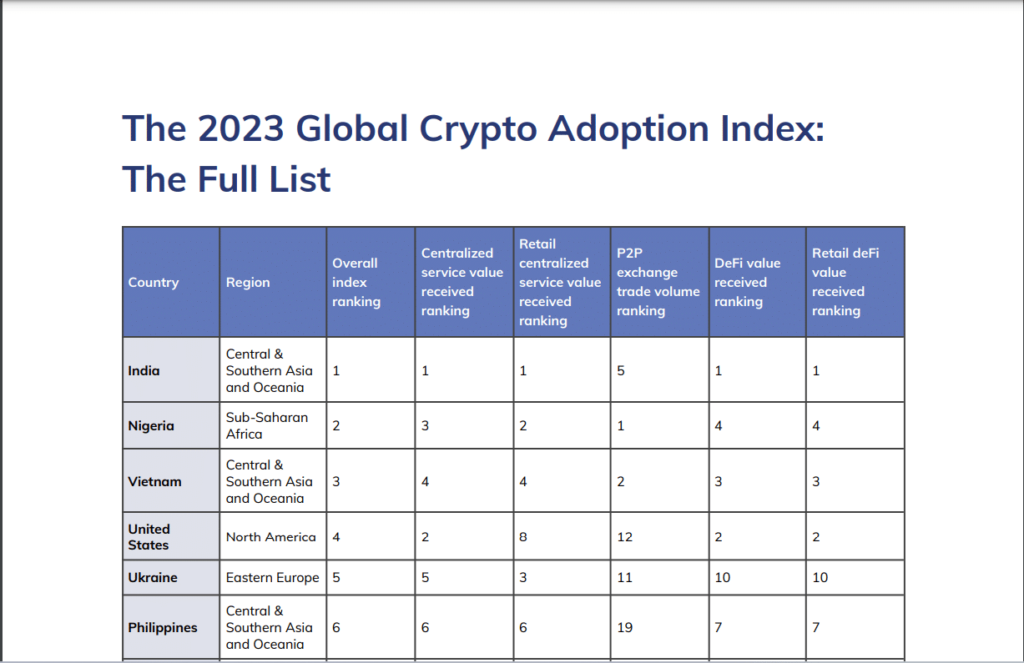- Nigeria plans to lift crypto ban with new guidelines from Apex Bank.
- The country continues to see rising crypto adoption rates.
Nigeria has been actively discussed in the cryptocurrency space mainly due to its increasing adoption as evidenced by several reports. However, the lack of clear regulations over the years has led to a ban on digital asset transactions by the apex bank in the country.
This situation may change following a recent circular from the Central Bank of Nigeria. The circular has also been followed by new guidelines.
Nigeria gets new crypto guidelines
On December 22, 2023, the Central Bank of Nigeria (CBN) issued a circular to the country’s banks. The circular spoke about the importance of following global trends regarding cryptocurrencies.
Notably, it replaces previous circulars from 2017 and 2021, which had banned banks from engaging in crypto-related transactions. In addition to this circular, the CBN has issued a publication guidelines outlining the regulations for the country’s virtual asset service providers (VASPs).
An important aspect of the new guidelines concerns the requirements for opening and managing accounts for VASPs. According to the guidelines, financial institutions must maintain records of these VASPs, including transaction data.
In addition, users on these platforms are required to provide identifiers for transactions. This means that centralized and decentralized exchanges seeking approval in the country must follow Know Your Customer (KYC) data requirements.
While lifting the ban through regulatory action is viewed positively, the provision for user identification raises concerns about the loss of anonymity. This could potentially lead to mixed reactions from users in the country.
The infamous crypto ban in Nigeria
In February 2021, the Central Bank of Nigeria (CBN) stepped in to address the lack of cryptocurrency regulation and consumer protection measures. The top bank’s action was prompted by concerns about money laundering and terrorist financing.
Consequently, it issued a circular that prevented Nigerian banks from directly linking bank accounts to cryptocurrency transactions. Despite this ban, crypto adoption continued in Nigeria, leading to the growth of peer-to-peer (P2P) trading.
How Crypto Adoption Has Grown in Nigeria
Based on the analysis of the 2022 cryptocurrency adoption report from Chain analysisNigeria initially ranked 18th in terms of P2P exchange volume.
However, the 203 reports showed a significant shift, with the country now securing the top spot in terms of P2P exchange volume. This showed the substantial growth Nigeria has experienced in recent months.
Furthermore, the report found that Nigeria ranks second in centralized retail services. The ranking contributed to an overall index ranking of second place.
Despite the turmoil on the market, the report showed that Nigeria’s crypto economy continued to grow. Notably, the country is among the six selected countries within the top 50 globally that have experienced year-on-year growth in crypto transaction volume. With a growth rate of 9.0%, Nigeria ranks third among these six countries, reflecting the positive trajectory of its crypto market.
It is also important to note that stablecoins were the most dominant transactions in the country. This was largely due to the need to hedge against inflation as the local currency, the Naira, continued to fall.

Source: Chain analysis
How the crypto market has developed
A recent analysis of cryptocurrency market capitalization showed substantial growth in recent months.
Data from CoinMarketCap showed that there has been a notable increase in market capitalization from the end of September 2023. This increase can be attributed to rising asset prices, mainly driven by Bitcoin’s performance.
During the indicated period, the market capitalization was less than $1.10. However, at the time of writing, its market cap was over $1.7 trillion.

Source: CoinMarketCap

